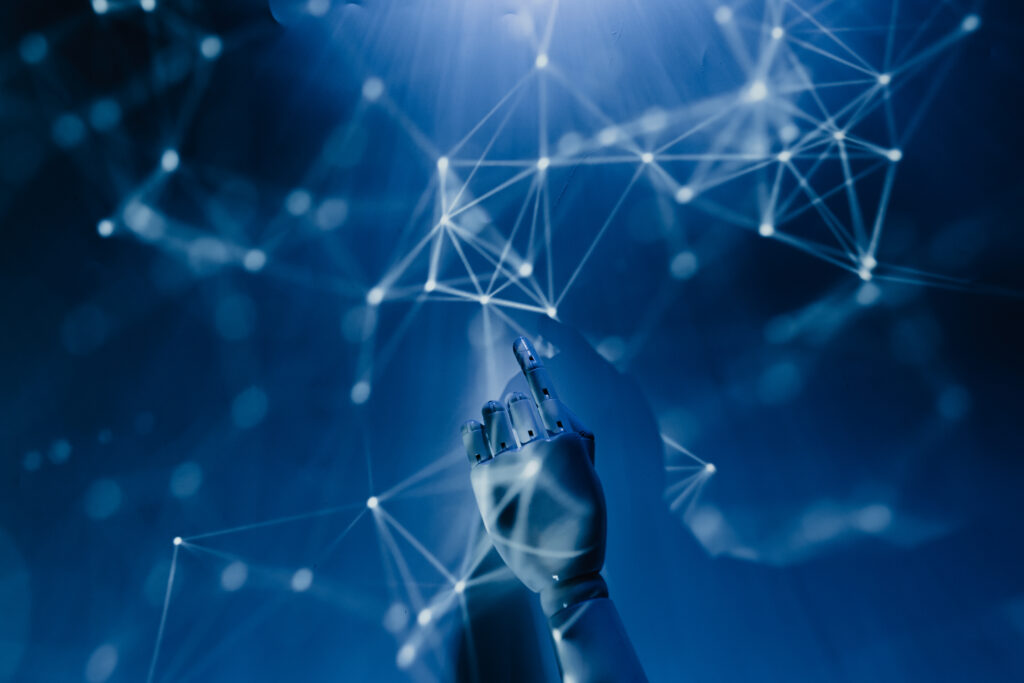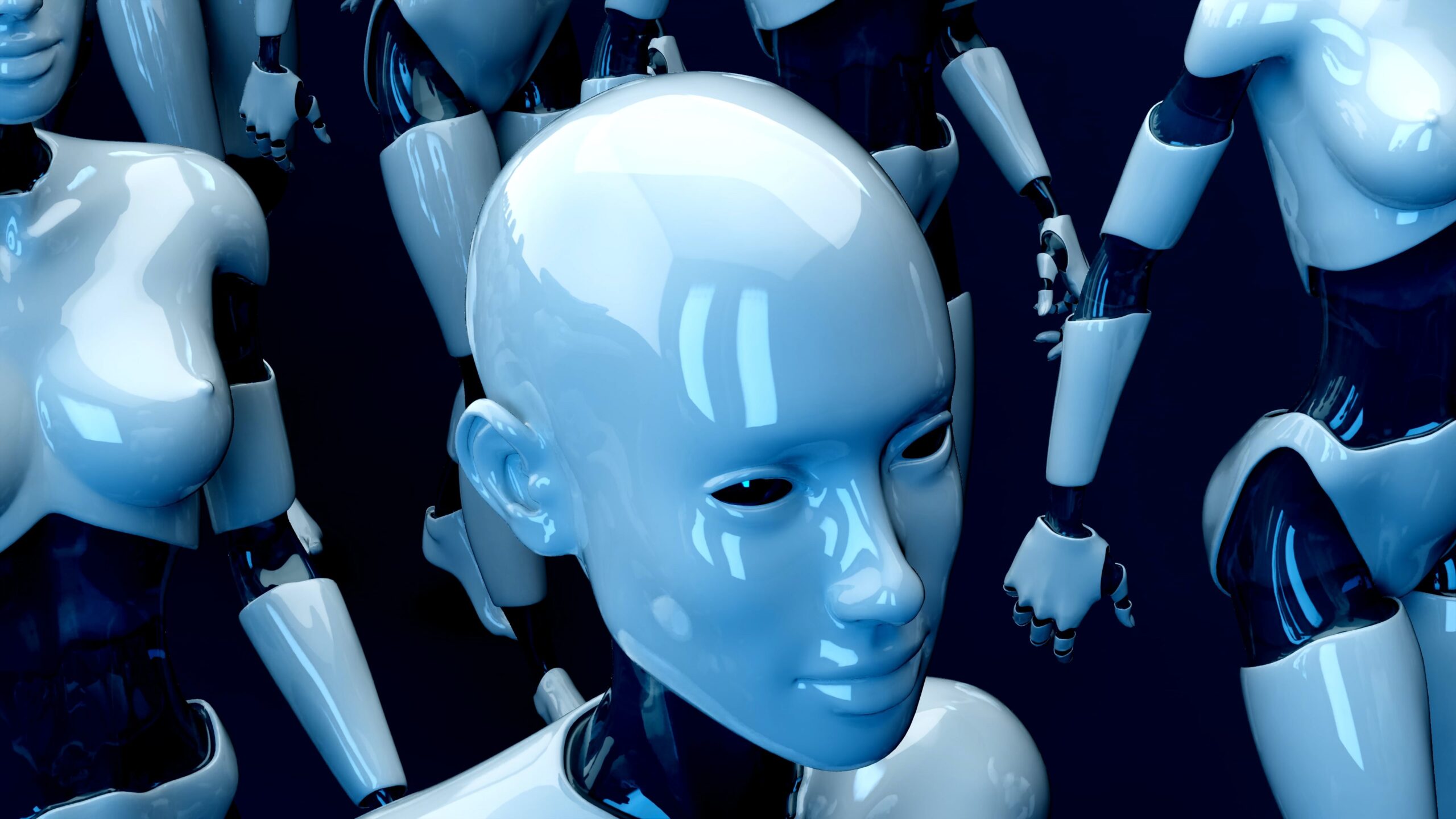In today’s fast-paced digital landscape, influencer collaborations have become an essential part of many brands’ marketing strategies. However, the process of identifying, engaging, and managing influencers can be time-consuming and challenging. That’s where A.I. comes in, offering a comprehensive solution to streamline the entire influencer collaboration process. By harnessing the power of artificial intelligence, brands can efficiently identify the right influencers for their campaigns, automate outreach and negotiation, and even measure the success of their collaborations. In this comprehensive guide, we will explore how A.I. is revolutionizing influencer collaborations, providing brands with the tools they need to navigate this dynamic space and achieve impactful results.
What is Influencer Marketing?
Influencer marketing is a strategy that leverages the influence and reach of popular individuals or “influencers” in order to promote products, services, or brands to their audience. These influencers have established credibility and authority in their respective niches and can effectively sway the purchasing decisions and behaviors of their followers. By partnering with influencers, businesses can tap into their already engaged and loyal fan base to reach a wider audience and drive brand awareness, credibility, and conversions.
Definition of Influencer Marketing
Influencer marketing can be defined as a form of marketing that focuses on using influential individuals to endorse or promote a brand’s products or services through various digital platforms and social media. The key aspect of influencer marketing lies in the authentic relationship between the influencer and their audience, which fosters trust and credibility. Unlike traditional advertising, influencer marketing relies on the influencer’s authority and expertise to persuade their followers to engage with the brand.
Benefits of Influencer Marketing
Influencer marketing offers several benefits that can greatly impact a brand’s marketing efforts. Firstly, it enables businesses to reach a highly targeted and engaged audience as influencers typically have a specific niche or demographic they cater to. This ensures that the message resonates with a receptive audience, increasing the chances of conversion.
Secondly, influencer marketing provides an opportunity for organic and authentic content creation. Influencers have a deep understanding of their audience’s preferences and can create content that aligns with their interests, making it more relatable and trustworthy. This authenticity leads to higher engagement and encourages followers to take action.
Additionally, influencer marketing can significantly boost brand awareness and recognition. By associating with credible influencers, businesses can leverage their existing loyal fan base to expand their reach and increase brand visibility. This can lead to increased website traffic, social media followers, and ultimately, conversions.
Lastly, influencer marketing offers a scalable and cost-effective alternative to traditional forms of advertising. Collaborating with influencers may require an investment, but compared to traditional advertising channels, the cost per impression and conversion is often more favorable. This makes it a viable option for businesses with limited marketing budgets.
Challenges in Influencer Collaborations
While influencer marketing holds immense potential, it is not without its challenges. One of the main challenges businesses face is identifying the right influencers to collaborate with. With the increasing number of influencers and the diversity of their audiences, finding the perfect fit for a brand can be time-consuming and resource-intensive.
Another challenge is ensuring that influencer content remains authentic and aligned with the brand’s values. As influencers gain popularity and work with multiple brands, there is a risk of diluted authenticity or conflicting brand messages. Maintaining consistency and transparency becomes crucial to preserve the integrity of influencer collaborations.
Furthermore, measuring the effectiveness and return on investment (ROI) of influencer marketing campaigns can be complex. Determining the impact of influencer collaborations on key performance indicators (KPIs) such as sales, conversions, or website traffic requires robust tracking and analytics tools. Without proper measurement, it can be challenging to justify the success or failure of influencer collaborations and optimize future campaigns.
Introduction to A.I. in Influencer Collaborations
With the rise of technological advancements, artificial intelligence (A.I.) has emerged as a powerful tool in streamlining influencer collaborations. A.I. refers to the simulation of human intelligence in machines that are programmed to learn from data, interpret patterns, and perform tasks that typically require human intelligence. Its integration into influencer marketing can enhance efficiency, accuracy, and effectiveness across various stages of the collaboration process.
The Role of Artificial Intelligence
Artificial intelligence plays a crucial role in influencer collaborations by automating and optimizing certain tasks that would otherwise be time-consuming for marketers. By leveraging machine learning algorithms, A.I. can analyze vast amounts of data, identify patterns, and provide valuable insights that can inform decision-making in influencer marketing campaigns.
Advantages of AI in Influencer Collaborations
The integration of A.I. in influencer marketing offers several advantages. Firstly, A.I. can significantly expedite the influencer identification process. By analyzing data such as audience demographics, engagement rates, and content preferences, A.I. algorithms can efficiently identify influencers who are the best fit for a brand’s target audience and objectives. This eliminates the need for manual screening and allows marketers to focus on building relationships with the most relevant influencers.
Secondly, A.I. helps streamline the outreach and negotiation process. By automating initial contact, follow-ups, and even contract negotiations, A.I. platforms enable marketers to save time and resources while ensuring timely and consistent communication with influencers. This automated approach can also help maintain a record of conversations and streamline collaboration workflows.
Furthermore, A.I. can optimize content collaboration between brands and influencers. A.I.-powered tools can assist in content planning, strategy development, and even content creation. By analyzing past performance data and consumer preferences, these tools can offer valuable recommendations and insights, thereby enhancing the effectiveness and relevance of influencer content.
Lastly, A.I. can aid in measuring campaign performance and determining ROI. Through predictive analytics, A.I. algorithms can generate forecasts of campaign outcomes, enabling marketers to make data-driven decisions and optimize campaigns in real-time. Additionally, A.I. can assist in tracking influencer reach, engagement, and conversions, providing a comprehensive analysis of the campaign’s effectiveness.

This image is property of images.pexels.com.
Identifying the Right Influencers Using A.I.
In the vast landscape of influencer marketing, finding the most suitable influencers for a brand’s campaign can be a daunting task. This is where the power of artificial intelligence comes into play, offering a range of benefits in the process of influencer identification.
Benefits of Using A.I. for Influencer Identification
A.I.-based influencer identification brings numerous benefits to marketers. Firstly, it enables a more data-driven approach by crunching massive amounts of information to identify influencers who align with a brand’s target audience and campaign objectives. By analyzing audience demographics, engagement rates, and content affinity, A.I. platforms can provide accurate and reliable recommendations, ensuring marketers connect with influencers who have the highest potential to generate desired results.
Secondly, A.I. offers scalability and efficiency in influencer search and evaluation. Instead of manually sifting through numerous influencers, A.I. algorithms can perform these tasks within a fraction of the time, allowing marketers to focus on relationship building and campaign strategies. This not only saves time but also ensures that influencers who are genuinely interested in the brand are efficiently identified.
Tools and Platforms for A.I.-based Influencer Audience Analysis
A variety of tools and platforms have emerged that leverage A.I. for influencer audience analysis. These tools provide in-depth insights into an influencer’s audience, allowing marketers to make informed decisions about potential collaborations.
One such tool is SocialBakers, which utilizes artificial intelligence to analyze influencer audiences on social media platforms. It provides detailed demographics, interests, and engagement data, enabling marketers to narrow down their search and identify influencers who align with their target audience. Other popular platforms that leverage A.I. for influencer audience analysis include HypeAuditor, Fohr, and Upfluence.
Metrics to Consider in Influencer Selection
When utilizing A.I. for influencer selection, it is important to consider the relevant metrics that determine an influencer’s suitability for a brand collaboration. These metrics can include audience demographics such as age, gender, location, and interests, as well as engagement rates, authenticity, and past campaign performance.
By analyzing these metrics with the help of A.I., marketers can identify influencers who have a highly engaged and relevant audience, ensuring that their message reaches the right people. Additionally, considering an influencer’s authenticity and past performance can help determine their credibility and ability to drive desired actions from their followers.
Automating Outreach and Negotiations with A.I.
Once the ideal influencers have been identified, the next step in streamlining influencer collaborations is to automate the outreach and negotiation processes. Artificial intelligence can play a significant role in simplifying these aspects of influencer marketing.
Streamlining Outreach Processes with A.I.
Using A.I.-powered platforms, marketers can automate the initial outreach to influencers. These platforms can automatically send personalized emails, direct messages, or even comment on influencers’ social media posts, allowing for efficient and consistent communication. This not only saves significant time and effort but also ensures that all influencers receive the necessary information and feedback in a timely manner.
Analyzing Influencer Engagement and Authenticity
A.I. can assist in analyzing influencer engagement and authenticity, ensuring that collaborations are with influencers who genuinely resonate with their audience. By examining engagement rates, comments, likes, and overall interactions, A.I. algorithms can identify influencers who have a high level of engagement and authentic interactions with their followers. This helps marketers ensure that their brand message will be received positively and effectively.
Negotiation Assistance through A.I.
Artificial intelligence can also aid in the negotiation process between brands and influencers. A.I.-powered platforms can generate insights about an influencer’s pricing, past collaborations, and performance metrics, enabling marketers to negotiate fair and beneficial contracts. This not only saves time but also helps establish transparency and fairness in the collaboration process.

This image is property of images.pexels.com.
Optimizing Creative Collaboration with A.I.
Creative collaboration plays a vital role in effective influencer marketing campaigns. By leveraging A.I., companies can optimize the creative aspects of collaborations, resulting in more impactful and engaging content.
Content Planning and Strategy with A.I.
A.I. can analyze vast amounts of data to inform content planning and strategy. By assessing past campaign performance, consumer preferences, and emerging trends, A.I. algorithms can offer valuable recommendations on content themes, formats, and timing. This enables marketers to tailor their content strategies to maximize engagement and resonance with the target audience.
A.I.-powered Content Creation Tools
In addition to strategy development, A.I. can also assist in content creation. There are various A.I.-powered tools available that can help influencers and marketers create visually appealing and engaging content. These tools use advanced algorithms to generate and edit images, videos, and even written content, saving time and enhancing the overall quality of the content. By leveraging A.I. to optimize content creation, influencers and marketers can focus their efforts on other critical aspects of the campaign.
Real-time Collaboration and Feedback
A.I. can facilitate real-time collaboration and feedback between brands and influencers. Through virtual collaboration platforms, marketers and influencers can share ideas, review content drafts, and provide instant feedback. This not only streamlines the creative collaboration process but also allows for iterations and improvements in real-time. By leveraging A.I. to enable seamless collaboration, brands can ensure that the final content aligns with their objectives and resonates with the target audience.
Enhancing Campaign Performance with A.I.
Artificial intelligence can significantly enhance the performance of influencer marketing campaigns by providing valuable insights, optimizing reach and engagement, and measuring ROI.
Predictive Analytics for Campaign Success
By leveraging predictive analytics, A.I. algorithms can forecast the potential success of influencer marketing campaigns. By analyzing historical data, market trends, and audience behavior, A.I. platforms can provide marketers with actionable insights to optimize their campaigns even before launching them. This enables marketers to make data-driven decisions, allocate resources effectively, and maximize campaign success.
Optimizing Influencer Reach and Engagement
A.I. can optimize influencer reach and engagement by identifying optimal posting times, content formats, and audience segments. By analyzing data on audience behavior, A.I. algorithms can determine the most effective channels, times, and types of content that generate the highest engagement. This allows marketers to tailor their campaigns accordingly, ensuring that the influencer’s content reaches the right audience at the right time for maximum impact.
Measuring ROI and Effectiveness with A.I.
Arguably one of the most significant challenges in influencer marketing is measuring the return on investment (ROI) and overall effectiveness of campaigns. A.I. can assist in measuring key performance metrics, such as conversions, sales, website traffic, and social media engagement. By integrating data from various sources, A.I.-powered analytics platforms can provide comprehensive and accurate insights into campaign performance, enabling marketers to assess the effectiveness of influencer collaborations and make data-driven improvements.

This image is property of images.pexels.com.
Compliance and Authenticity in Influencer Collaborations
Maintaining compliance and authenticity is crucial in influencer collaborations to build trust and credibility with the audience. A.I. can play a vital role in ensuring compliance with regulations, spotting fake followers, and preserving authenticity.
A.I.-based Fake Follower Detection
Influencer collaborations can be undermined by the presence of fake followers or engagement. A.I. algorithms can analyze an influencer’s social media accounts, audience engagement patterns, and follower growth rates to identify any suspicious activity. By detecting fake followers and engagement, A.I. platforms help marketers ensure that their collaborations are based on genuine influence and prevent potential damage to their brand reputation.
Ensuring FTC Compliance through A.I.
Influencer marketing is subject to regulations set by the Federal Trade Commission (FTC) in the United States, as well as similar authorities in other countries. A.I. can assist in ensuring compliance by monitoring influencers’ disclosure practices and evaluating the transparency of sponsored content. By automating the monitoring process, A.I. platforms can help brands and marketers ensure that their influencer collaborations adhere to FTC guidelines, avoiding legal implications and maintaining ethical standards.
Maintaining Authenticity with Influencers
As influencers collaborate with numerous brands, it becomes crucial to maintain authenticity in their content. A.I. can help in monitoring influencers’ content to identify any deviations from their usual style or message. This ensures that the collaborations remain authentic and aligned with the influencer’s values and audience expectations. By leveraging A.I. to maintain authenticity, brands can safeguard their reputation and build long-term relationships with influencers.
Building Long-Term Relationships with Influencers
Building long-term relationships with influencers can yield significant benefits for brands, including increased loyalty, trust, and ongoing collaborations. A.I. can facilitate influencer relationship management and help identify opportunities for collaboration.
A.I.-driven Influencer Relationship Management
A.I.-driven influencer relationship management platforms can streamline the process of managing and nurturing relationships with influencers. These platforms can track influencer performance, collaboration history, and metrics that measure the effectiveness of the partnership. By leveraging A.I. to manage influencer relationships, brands can identify top-performing influencers, nurture partnerships, and identify new opportunities for collaboration.
Identifying Opportunities for Collaboration
A.I. platforms can analyze vast amounts of data to identify potential collaborations between brands and influencers. By considering factors such as audience overlap, content compatibility, and brand values, A.I. algorithms can identify influencers who may be a good fit for new campaigns or product launches. This proactive approach helps brands identify new opportunities, expand their influencer network, and strengthen their influencer marketing strategies.
Tracking and Nurturing Influencer Partnerships
Through A.I.-powered influencer relationship management platforms, brands can track and nurture their partnerships with influencers. These platforms can provide comprehensive insights into influencer performance, content metrics, audience engagement, and campaign outcomes. By constantly monitoring and nurturing influencer relationships, brands can ensure a seamless collaboration experience and foster long-term partnerships that drive ongoing success.
Data-driven Decision Making in Influencer Collaborations
The integration of A.I. in influencer collaborations allows for data-driven decision making, enabling marketers to optimize their campaigns and maximize results.
Leveraging A.I. for Data Analysis
A.I. enables marketers to leverage vast amounts of data and perform in-depth analysis to inform their decision making. By automatically processing data from multiple sources, A.I.-powered analytics platforms can identify patterns, correlations, and consumer insights that can shape influencer marketing strategies. This data-driven approach empowers marketers to make informed decisions and maximize the impact of their influencer collaborations.
Identifying Key Performance Indicators (KPIs)
Determining the right key performance indicators (KPIs) is essential to assess the success of influencer marketing campaigns. A.I. can assist marketers in identifying the most relevant KPIs based on campaign objectives, industry benchmarks, and historical data. By selecting the right KPIs, marketers can measure the impact of influencer collaborations accurately and evaluate the effectiveness of their strategies.
Using Data Insights for Campaign Optimization
A.I.-driven analytics platforms provide marketers with actionable data insights that can drive campaign optimization. By analyzing real-time data, A.I. algorithms can identify opportunities for improvement, recommend adjustments to content or targeting strategies, and offer insights on audience behavior. This enables marketers to continuously optimize their campaigns based on data insights, ensuring maximum effectiveness and ROI.
The Future of A.I. in Influencer Collaborations
The future of influencer collaborations is closely intertwined with advancements in artificial intelligence. As A.I. continues to evolve, new technologies and approaches are expected to further enhance the effectiveness and efficiency of influencer marketing.
Emerging A.I. Technologies for Influencer Collaborations
Several emerging A.I. technologies show great potential for influencer collaborations. Natural language processing (NLP) algorithms, for example, can analyze sentiments and opinions expressed in comments or reviews, providing deeper insights into audience perception and feedback. Additionally, computer vision algorithms can analyze visual content, making it possible to measure the impact of influencer-generated images and videos in real-time. These advancements promise new possibilities for influencer collaborations, allowing for more accurate and personalized campaigns.
Potential Challenges and Limitations
While A.I. offers numerous advantages, there are potential challenges and limitations that need to be addressed. A.I. platforms heavily rely on data, and the quality and accuracy of the data can significantly impact the results and recommendations provided. Moreover, the interpretation of data and the algorithms used for analysis may vary, leading to different outcomes and insights. It is important for marketers to critically evaluate the suggestions and recommendations provided by A.I. platforms and ensure appropriate human oversight to maintain ethical standards and avoid potential biases.
Ethical Considerations in A.I.-driven Marketing
The use of A.I. in influencer collaborations raises ethical considerations that need to be carefully addressed. As A.I. algorithms mine data and analyze user behavior, there is a need to ensure data privacy and consent. Marketers must prioritize the security and ethical use of user data, obtaining proper permissions and transparency.
Moreover, there is a growing concern about the emergence of deepfake technology, which involves creating highly realistic and misleading content using A.I. algorithms. To maintain authenticity and trust, it is imperative for brands and influencers to prevent the misuse of A.I. for generating deceptive content and to promote transparency in their collaborations.
In conclusion, the integration of artificial intelligence in influencer marketing holds immense potential for streamlining collaborations and enhancing campaign effectiveness. From influencer identification to content creation, A.I. offers benefits such as automation, data-driven decision making, and optimization. However, it is essential for marketers to approach A.I. integration ethically and thoughtfully, ensuring transparency, privacy, and authenticity in influencer collaborations. By harnessing the power of A.I., businesses can unlock new opportunities and maximize the impact of their influencer marketing campaigns in the ever-evolving digital landscape.
